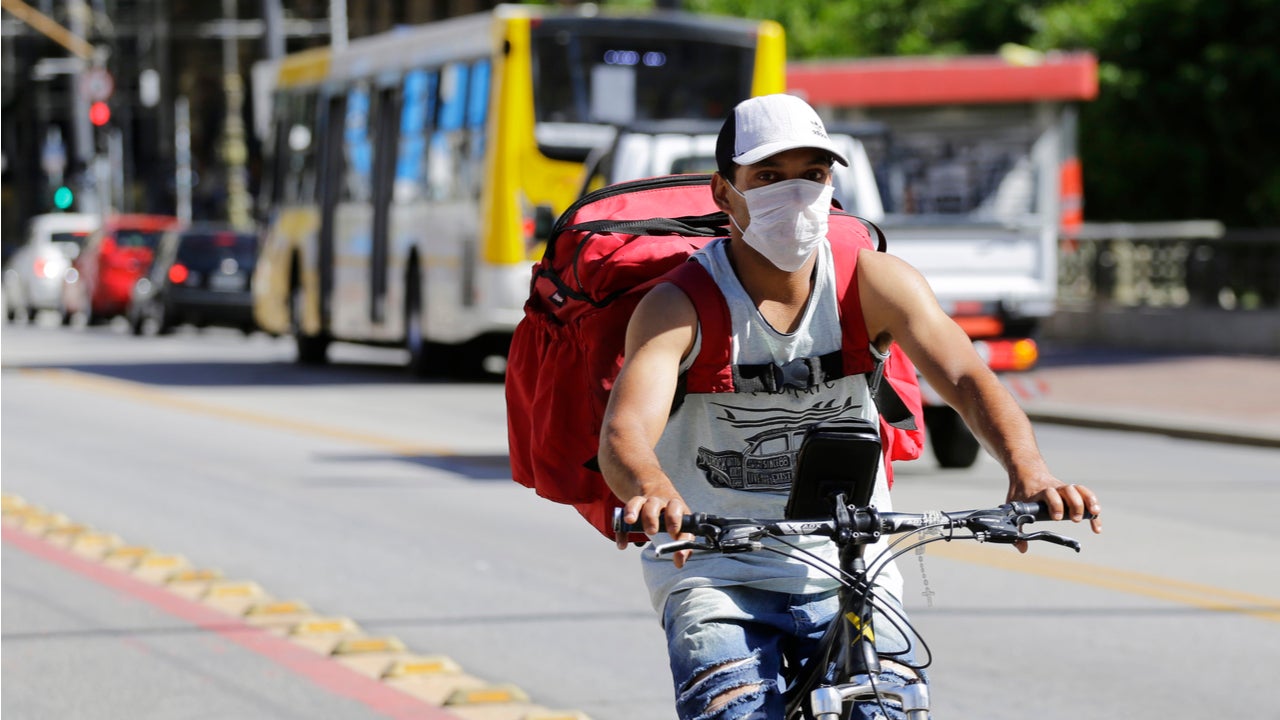
Economists believe that the ability of people to work determines their livelihoods, especially in crises such as the Covid-19, which has caused millions of workers to lose their jobs or be exposed to the virus. While advanced economies rapidly adopt remote working, occupational structures are preventing working from home in developing countries.
Stephen L Ross
Stephen L Ross, an urban economist, re-tweeted an article on how feasible working from home is in developing countries. The article noted that people’s economic experience of Covid-19 depends partly on whether they are able to work from home. Additionally, poorer countries have fewer jobs that can be done at home, resulting in more workers losing their jobs or being exposed to the virus while working.

Discover B2B Marketing That Performs
Combine business intelligence and editorial excellence to reach engaged professionals across 36 leading media platforms.
In countries like Brazil, low-qualified workers are less likely to do their job at home. Therefore, the impossibility to switch to a home environment is forcing people to leave their houses for work during the pandemic. Evidence suggests that by May 2020, about 14% of the Brazilians employed were working remotely, while 37% of the employees with a tertiary education were able to work from home, and only 1% of the workers with no school leaving certificate were able to work remotely.
Data from the Skills Toward Employability and Productivity (STEP) survey also found that ten developing countries including Bolivia, China, Armenia, Georgia, Colombia, Kenya, Ghana, Laos, Vietnam, and Macedonia, had only 13% of the employed population working from home.
WFH in emerging markets: "By May 2020… only 14% of the Brazilian employed population were working remotely… 37% of (formal) employees with a tertiary education were able to work from home… only 1% of workers with no school…" https://t.co/2EsW2to6m8
— Trade Diversion (Jonathan Dingel) (@TradeDiversion) December 2, 2020
 GlobalData Strategic Intelligence
GlobalData Strategic IntelligenceUS Tariffs are shifting - will you react or anticipate?
Don’t let policy changes catch you off guard. Stay proactive with real-time data and expert analysis.
By GlobalData
Wonk Monk
Wonk Monk, an economic policy activist, shared an article by Gavyn Davies, the chairman of Fulcrum Asset Management on the risks of global Covid debt bridge. He states that the markets seem unconcerned about how the pandemic has left borrowing at all-time highs.
The start of the Covid-19 pandemic had sent clear signs for the global economy to extend public and private debt in order to avoid a persistent and deeper depression. This unprecedented explosion in debt, however, helped provide a bridge over the collapsed world output, that in turn helped mitigate corporate bankruptcies and household hardships.
With much progress being made on the vaccine development front, investors feel confident about the end of this debt bridge, states the author. However, the surge in borrowing this year has been called the largest wave in a great debt tsunami.
The Institute of International Finance (IIF) reported a rise in the ratio of global debt to gross domestic product (GDP) from 320% in 2019 to 365% in 2020. Although the IIF unambiguously regards this as more trouble., financial markets seem to have ignored these warnings, the article noted.
"A far more dangerous, systemic debt crisis probably requires a reversal of secular stagnation, and a rise in world inflation, forcing the Fed to tighten monetary policy significantly. Luckily, that still seems a very long way off." @gavyndavies https://t.co/AuGc7a9by5
— wonkmonk (@wonkmonk_) December 2, 2020
Kenneth Cukier
Kenneth Cukier, a senior editor at The Economist, re-tweeted an article written by Katy Milkman, a Wharton School of the University of Pennsylvania professor, who explains how behavioural science offers the key to getting more people vaccinated against the Covid-19 disease. A catastrophe can unfold if people reject immunisations, Milkman adds.
As Covid-19 vaccines come to a near approval and administration stage, the new challenge facing societies is its uptake. Experts believe that if few agree to immunise, it will leave the world in further chaos and with limited use of the vaccines.
A survey sample finds that approximately 60-80% of the population are required to get vaccinated and receive the antibodies, either through vaccines or from those recovered, to achieve herd immunity that will protect the entire world. However, the survey also suggested that despite three-fourths of the people willing to be vaccinated across 15 countries, about 33% strongly agreed to get immunised, and about 40% somewhat agreed.
Experts therefore believe that persuasion and follow-up is the only way to ensure global immunity. In America, for instance, 72% of the population agreed to get vaccinated when the vaccine was made available; however, by September, just 51% agreed to get immunised, the article detailed.
https://twitter.com/kncukier/status/1333915609067909127

